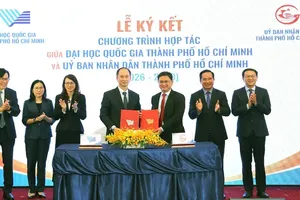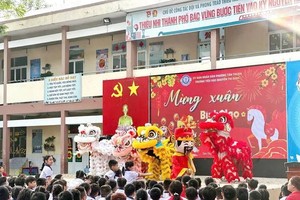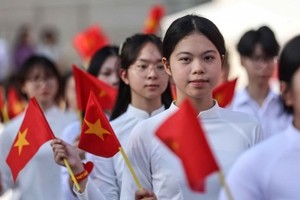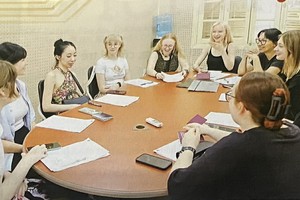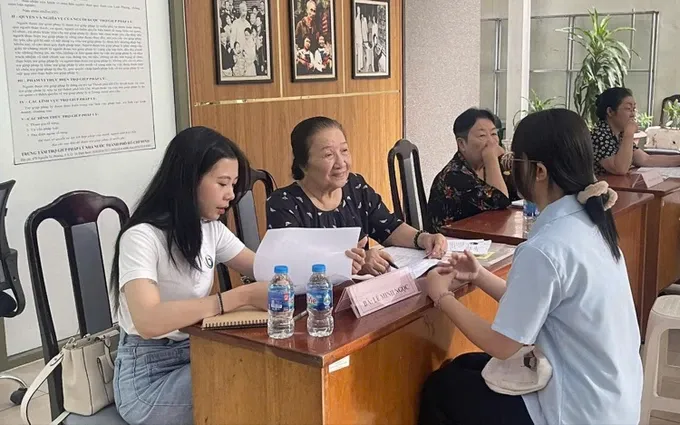
Cu Chi District, with its unique socio-economic context, has long prioritized education and lifelong learning as crucial elements in elevating public literacy and cultivating high-quality human resources for local development.
One of its standout initiatives is the "Spiritual Parents" club, which encourages organizations and individuals to support underprivileged students. This has significantly boosted the district's efforts to mobilize social resources for education.
District 4 has implemented a comprehensive plan to build a learning society, focusing on models such as "Learning Units," "Learning Communities," and "Learning Families." As a result, all of the district's party cells, schools, and neighborhoods now have learning clubs.
Through proactive and flexible implementation of these initiatives, the district has achieved 100 percent participation from party committees and cells in establishing Learning Promotion Associations, with every school, institution, and neighborhood maintaining Learning Promotion branches, encompassing 35,947 members – representing over 18 percent of the total population.
The locality has meticulously assigned specific roles and responsibilities to each unit in coordinating and organizing educational promotion activities, with a special focus on talented people. Organizations and individuals who have made significant contributions to educational promotion and the development of a learning society are regularly recognized and rewarded.
Districts undergoing rapid urbanization and population growth, such as Binh Tan and Tan Phu, face unique challenges in mobilizing resources for education. To address these issues, initiatives like the "Learning Piggy Bank" and "1-to-1 Scholarship" programs have been implemented to encourage community participation.
Standing Deputy Head Le Hong Son of the HCMC Party Committee's Propaganda and Education Board emphasized that UNESCO's recognition presents both an honor and a challenge. To build upon this achievement, the city has focused on enhancing public awareness of lifelong learning and creating a conducive environment for learning.
Building on this foundation, Deputy Director Le Thuy My Chau of the HCMC Department of Education and Training announced that by late 2025, HCMC will have enhanced public awareness of lifelong learning and establish itself as a learning city within the digital economy.
Currently, the Department has advised the HCMC People's Committee on refining policies for developing a learning city, particularly focusing on supporting organizations in this endeavor. This includes facilitating opportunities for workers to enhance their professional skills and qualifications while supporting retirees, homemakers, and individuals with disabilities in pursuing lifelong learning.
At the district level, Thu Duc City and the 21 districts are intensifying promotional efforts through various channels, including web portals, internal newsletters, social media, and community activities to engage citizens in educational promotion and learning society development.
Additionally, initiatives such as "Lifelong Learning Week," mobile libraries, and storytelling sessions about Uncle Ho at various institutions contribute to enhancing lifelong learning effectiveness. Community learning centers have received increased attention through infrastructure investment and personnel optimization to ensure effective operations and enhanced IT application, meeting development objectives in the contemporary context.
For the 2024-2025 academic year, HCMC's Association for Learning Promotion awarded scholarships to 318 outstanding students, including 77 first-time recipients and 241 renewal ones (2nd to 6th time), with a total value exceeding VND1.6 billion (US$63,300).
